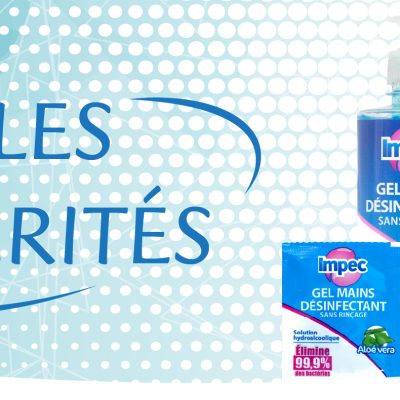Good personal hygiene is essential for good health. Hygiene ensures the body’s well-being and prevents all kinds of illnesses, particularly those linked to bacteria, viruses and germs. It’s important to remember that the body possesses natural defenses through various barriers such as the skin and, more broadly, the immune system. However, as the immune system is called upon, it draws on its energy reserves, which can make it vulnerable at a certain point.
There are many things you can do to help your immune system, including practicing good personal hygiene.
What are the body hygiene practices that help you maintain an iron constitution?
Here’s our advice:
Hand hygiene
The importance of hand hygiene has been highlighted more than ever by the covid-19 pandemic. It reminded us that hands are disease vectors, because germs that infect surfaces are easily transmitted by touch.
That’s why we strongly advise you to keep your hands clean at all times by washing them after using the toilet, before eating, after going out, etc.

To that end, you need to use clear water and soap, or a hydroalcoholic solution formulated with at least 60% alcohol, when you’re outdoors and to disinfect thoroughly.
You should also dry your hands thoroughly after washing them with soap and water. This eliminates all germs and other residues that may have survived rinsing. Some microbes and fungi like humidity and can multiply even after washing. To eliminate them, dry your hands with a clean towel, paper towel or in the open air, shaking them before touching anything again.
Daily shower
The skin is an effective barrier that protects us from germs and viruses. Over the course of the day, these germs and all sorts of other dirt build up on it, and need to be eliminated with a germicidal product: soap. To make it simple, you need to take a shower, to get rid of sweat, dirt, excess sebum, germs and so on.
Whether you use soap or shower gel for daily cleansing, make sure you choose a hypoallergenic, PH-neutral product to protect your skin from allergic reactions and irritation.
It’s worth noting that facial hygiene is just as important as hand hygiene, as germs accumulate there very easily. Health authorities estimate that we touch our faces at least 3,000 times, transferring germs from our hands to our faces.
Intimate hygiene
Intimate hygiene is essential to prevent infections caused by micro-organisms, such as mycosis. Contrary to popular belief, it’s just as important for men as it is for women, even though most intimate hygiene products are specially formulated for women.
And although these products are available on the market, it’s not advisable to overuse them. In fact, the intimate zone is constantly rebalancing to ensure its hygiene and health. Excessive washing and, above all, the overuse of hygiene products – even gentle ones – should be avoided, as they can lead to irritation.
Similarly, douching and other forms of internal cleansing should be avoided unless medically recommended, to ensure that the internal hygiene process functions optimally.
Finally, it’s also inadvisable to rub the intimate area with a washcloth, as this can retain bacteria and transmit mould.
Oral and dental hygiene
Health authorities recommend brushing your teeth at least twice a day after meals to avoid tooth decay and bad breath. But for perfect dental hygiene, they also encourage follow-up visits to the dentist at least once a year to detect any oral infections.
Mouthwashes, on the other hand, are only recommended when you suffer from tooth and gum problems. If you don’t suffer from any of these problems, it’s best to abstain or at least choose a mouthwash that doesn’t contain alcohol or antiseptics, to avoid drying out the mouth and destabilizing the oral flora.






